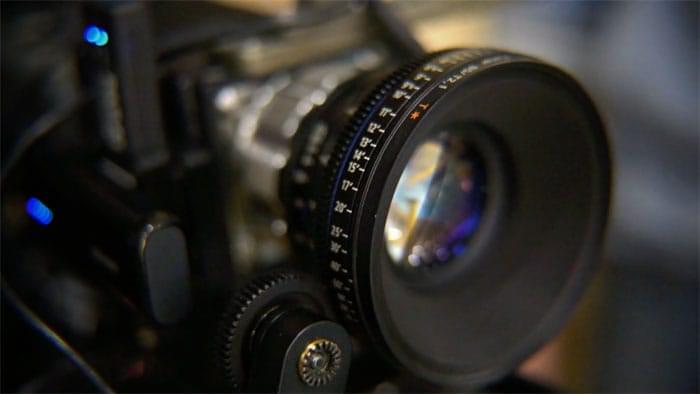
I bet you didn’t know I’m an art buff. I bet you didn’t know I was nearly given an art scholarship in grade school. I bet you don’t care. Moving on, the fact that a movie concerning one of my favorite artists of the twentieth century ever existed and I hadn’t known of it until now was infuriating to say the least. Munch was one of the greatest painters to ever live, yet another tortured man who gave way to his inner demons and reflected that on the canvas. Sure, the concept of having this avant-garde film be shot as a faux-documentary set in the time of Munch’s life, having interviews with his family, and having the camera man walk around them while they talk, is utterly original and rather brilliant, but Watkin’s portrait of Munch is far from ever perfect.
It’s extremely difficult to create a film centering on any sort of artist. Films that profile artists are hardly ever capable of providing us with insight in to these people’s work and art with a balance. Either they focus too much on the work and we lose all essence of the person, or we focus too much on the melodrama and not enough on the creative process. In all of the film’s running time of three and a half hours, we’re given both, but both aspects sadly end up weak. The peeks in to Munch’s home life are cold and un-involving with acting that is cardboard, while his art is approached with slight insight presenting us with the creative process only briefly and then having the narrator explain to us what the painting means. Meanwhile, the director’s methods are surreal, yet interesting. And admittedly, it takes some getting used to until you discover what he’s attempting with this method.
He poses “Edvard Munch” as a semi-documentary/film about the artist. The camera man tapes the family discussing politics and arguing, looks at Munch painting his portraits of death around him, Munch and the family are often looking towards the screen, and the narrator—who reads from Munch’s diaries—explains the situations before us. Munch’s life, through misery, and poverty, was also a cold life which he reflected in his paintings. He was never close to his brothers and sisters, and lost his mother to a debilitating disease when he was young. Watkin’s direction is possibly the most appealing aspect of “Edvard Munch”. It’s shocking that no one else has ever really approached a bio-pic with this sort of semi-modern angle very much, especially in the age where reality television is so popular. Though the goal is quite noble with an honest and original attempt at profiling an artist, the end result is drawn out in to alienating elements that keep this from ever becoming the masterpiece I’d heard so much about.

